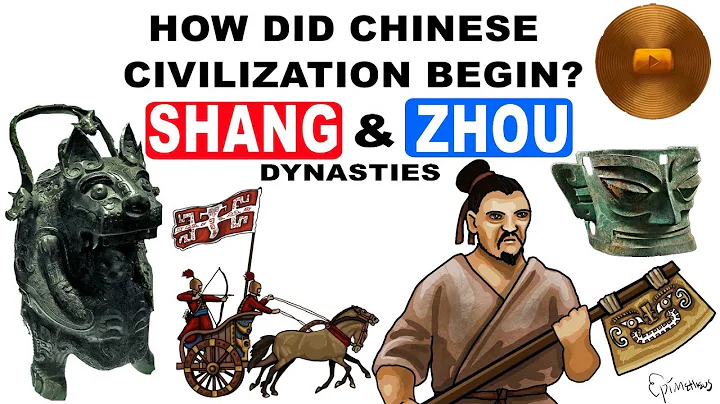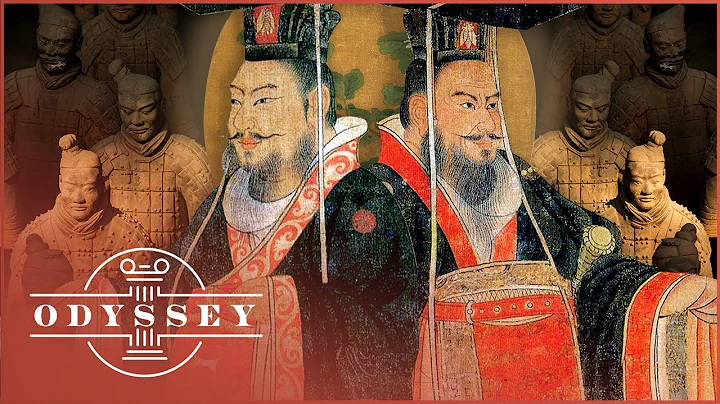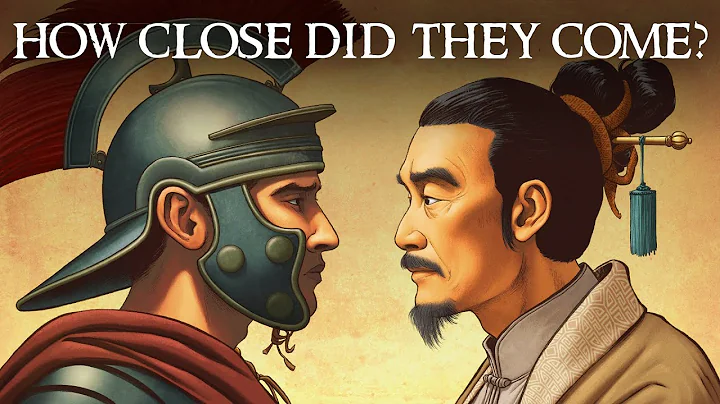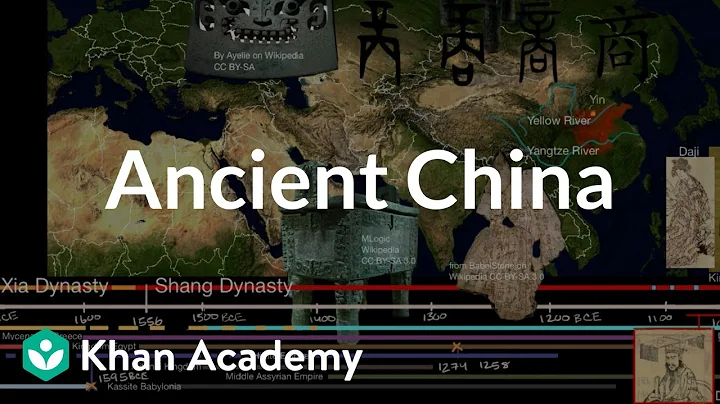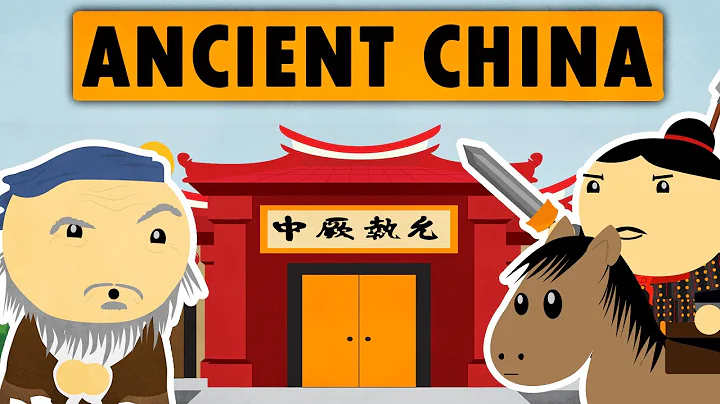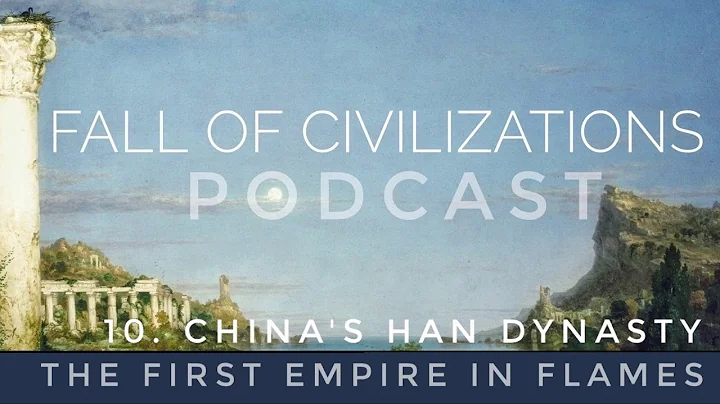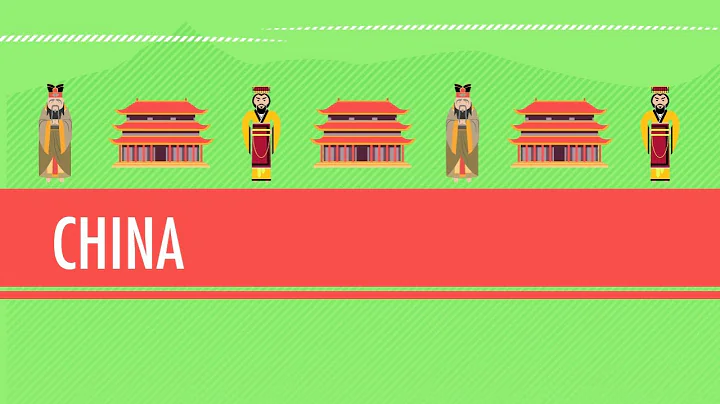
"Brothers live within a wall and stay outside to resist their insults." This sentence really illustrates the fundamental logic of the Chinese people to regulate their families, govern their country, and bring peace to the world. In the past hundred years or so, from the Westernization Movement in the late Qing Dynasty, to the attempt to save the nation at the end of the Republic of China, to the cooperation between the Kuomintang and the Communist Party to resist Japan, and then to the Sino-US trade war, we have been closely related to the two matters of "external affairs" and "domestic affairs". Other countries and other ethnic groups have very different perceptions. In traditional culture, the Chinese culture, which is based on the civilization of the Han people in the Central Plains, recognizes the merits of the world by externally resisting the foreign barbarians, and recognizes the faults of the world by annexing internally. But how did this principle come to be? What details are there? Today, we want to talk about the issue of "merits and faults".
" Zuo Zhuan " says that " the four barbarians deserve credit, but China does not", which means that whenever the princes conquer the barbarians from all directions and win, they must dedicate the captured people or objects to the emperor of Zhou , and the emperor of Zhou will use them. Warn the barbarians in all directions. If you fight in the Central Plains, you will not sacrifice. The author thinks: From the perspective of the above principles, it seems that the merits and demerits are very certain, that is, under the emperor of Zhou, the crusade against the barbarians was a merit, and the feuding of the princes was a fault. But then problems arise. First, without internal mergers, the unification of and after the Qin and Han Dynasties will no longer exist. What should we do? Second, they will only resist with force, and the multi-ethnic integration after the Spring and Autumn Period will no longer exist. What should we do? Third, if there are both merits and demerits, the criteria for judging a person or an event will be confused. What should we do? What to do if
01
internal merger occurs?
Duke Zhuang of Lu In the summer of the 30th year, the Lu army was stationed in Chengdi. Because Qi State wanted to seize Zhangdi, Lu Zhuanggong wanted to save Zhangdi but couldn't do it because Qi State was strong and Lu State was weak. Duke Zhuang of Lu is not mentioned here because he felt ashamed that he could not save Zhangdi.
In the seventh month of autumn, the people of Qi sent Zhangdi to surrender. Zhangdi is a distant city of Ji State. It has been twenty-seven years since Ji's death, and Ji Ji still protects Zhangdi. What is Zhang? It is the remaining city of Ji State. What does surrender mean? In fact, it was captured with troops. Use troops to seize it, so why not say "take" it? It is a taboo for Qi Huangong . The rules for taking towns outside the state of Lu were not written down, why should they be written down here? Because since then, all the cities of Ji Kingdom have been captured.
On August 23, Ji Shuji was buried. A woman from Lu married into a prince's wife. There is no book burial in "Spring and Autumn". Why is there a book burial here? It hurt her secretly. Why do you feel pain for her? Her husband's country was destroyed and she had to be buried by her brother-in-law. A woman calls her husband's brother her uncle, here she refers to Ji Ji. Not recording the date of death but recording the date of burial is a pity for the demise of the country.
The author said: Regarding the internal annexation of the princes, firstly, they do not accept it in name but accept it in fact. For example: Duke Xianggang of Qi destroyed Ji State, and the emperor of Zhou was weak and could not manage the princes. Therefore, the five hegemons in the Spring and Autumn Period rose up one after another. In fact, it was because of Fang Bo. The order replaced the order of the emperor; the second was that the fact was certain but the name was not. For example, when Duke Huan of Qi destroyed Zhangdi, the fact was "take", and the "Spring and Autumn" book "submit" was to avoid taboos for Duke Huan of Qi. Because "take" means to seize with troops, and "submit" means that the opponent surrenders on his own initiative. Duke Huan of Qi had great achievements in this matter, so he avoided it.
02
What to do with foreign enemies?
In the winter of the thirtieth year of Duke Zhuang of Lu, Duke Zhuang and Duke Huan of Qi had an informal meeting in Jishui, State of Lu, in order to plan an attack on the Shanrong , because the Shanrong were harmful to the State of Yan. Duke Huan of Qi was about to attack the mountain troops and asked Lu for help. Lu was unable to do so because the road was far and dangerous, so he promised to help. Moreover, "Spring and Autumn" believed that Rong and Di were also born from heaven and earth, but they could be expelled and should not be forced to kill too painfully, so they were demoted to Duke Huan of Qi.
The people of Qi attacked Shanrong. The people of Qi are Duke Huan of Qi. Why does the scripture say "man"? Cherish Qihou , and do not let "Shan Rong" and "Qihou" be called together. Why does the scripture cherish Duke Huan of Qi? Duke Huan had no internal support from the surrounding countries of Shanrong, nor did he have other vassal states to follow him, so he crossed thousands of miles of dangerous terrain to go north to attack Shanrong, which worried him. So are you criticizing him? It is to praise him, why praise him? The Yan State, a branch of the Zhou Dynasty , could not pay taxes to the court, so the crusade against the Shanrong was for this purpose.
In the summer and June of the thirty-first year of Duke Zhuang of Lu, Duke Huan of Qi came to our country to offer sacrifices to the captured soldiers. This was not in line with etiquette.Whenever the princes conquered the barbarians from all directions and achieved victory, they would dedicate the captured people or objects to the Emperor of Zhou, who would use them to warn the barbarians from all directions; they would not sacrifice them when fighting in the Central Plains. Princes cannot give prisoners to each other. Qi is a big country, why did Duke Huan of Qi come to present the spoils of war against Rong in person? In fact, it is intimidating our country. What's going on with intimidating our country? It is the flagpole that hangs the trophies passing through our country.
The author said: Regarding the princes' expedition against the four barbarians, one is to affirm their achievements in resisting the four barbarians. For example, the Shanrong attacked the Yan State all the year round, which isolated the Yan State from the imperial court. This was why Duke Huan of Qi went to attack the Shanrong. The second is to question the behavior of attacking the four barbarians, such as: Why belittle Duke Huan of Qi? "Probably because it was too painful to kill the mountain soldiers." This was a close-quarters battle, why not write "war"? In "Spring and Autumn", people with equal status spoke in dialect, and Duke Huan's treatment of Rong and Di could only be described as expulsion.
03
Conclusion
"Zuo Zhuan" in this year not only records the two events of Duke Zhuang of Lu rescuing Zhangdi and Duke Huan of Qi attacking the mountain soldiers, but also records the incident of King Hui of Zhou ordering Duke Guo to attack Fan Pi. This must be in Mention the word "king's destiny". Regarding "the merits and demerits of the world", "Three Biography" takes a cautious and thoughtful attitude. First, from the perspective of the world's great road, we believe that all human beings are lives and can be educated, and only killing cannot solve the problem; second, from the perspective of China's practical interests, we believe that resisting foreign barbarians, opening up channels, and increasing strength are beneficial to everyone; Third, from the perspective of human relations and affairs, internal faults can be replaced by external merits, and one should not be biased in understanding people and reasoning.
Back to the beginning, what is "the merits of the world and the faults of the world"? The merits of the world belong to one family; the faults of the world rob people of their wealth and belong to one country. Human beings are creatures of heaven and earth, so they can "seek common ground"; profits are different for everyone, so they can "seek differences". The author believes that the merit of the world is to seek common ground while reserving differences in culture, and to accept the common people but not the nobility; the fault of the world is to be exclusive in interests, to accept monopoly but not balance. To put it bluntly, we Chinese can accept the common people of the other party, but we cannot accept the "selfish" elites; we can accept win-win distribution, but we cannot accept the "profit-only" greed. Is this right or not? I hope you will consider it yourself!
